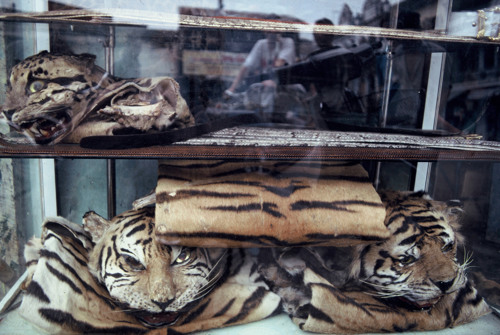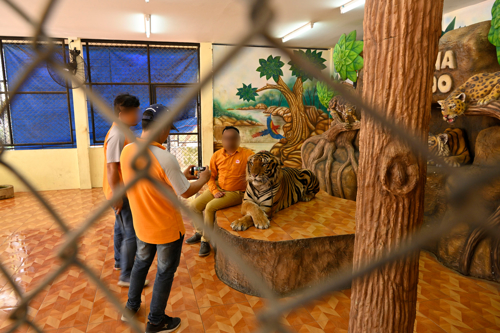
Phasing out tiger farms in Thailand

At the farms, visitors can have their photos taken with tiger cubs. In general, the tigers live in horrible conditions at these farms, and they are sedated so they can be handled during photo sessions. When the cubs become adults, they are used as breeding animals or sold on the black market – alive or in parts. Particularly tiger skin and bones are worth a lot of money. Technically, the registered tiger farms are legal, but the tigers’ awful living conditions and the selling of tiger parts are not. Failure to register the individual tigers makes it difficult for the authorities to enforce the law as they are unable to trace the origins of the confiscated tiger parts.

Establishing a DNA database
A new WWF project, supported by the QATO Foundation, aims to reverse this trend. The project builds on a pilot project in which WWF Thailand has joined forces with Thailand’s Department of National Parks, Wildlife and Plant Conservation and begun setting up a DNA database of tigers at the tiger farms. The project aims to add 800 more tigers to the database.
"Tiger farms are a huge problem in Southeast Asia. They contribute to the illegal trading in tigers and help to uphold the demand for tiger products. The illegal tiger trade is problematic both because of how the tigers are treated in captivity and because these farms are one of the biggest threats to the endangered wild tiger. This is why the project with the QATO Foundation is crucial for shutting down the existing tiger farms in Thailand. Thailand houses the second-largest population of tigers in captivity, after China. And being able to address the tiger-farm issue in Thailand, in cooperation with the QATO Foundation, WWF Thailand and the Thai government, will result in valuable lessons that WWF will be able to draw on outside Thailand, too,” said Anton Thorsen, Senior Project Manager, WWF.

Additional initiatives
It is crucial to embed the project with the relevant Thai authorities as well, because they help ensure access to the tiger farms and make sure that the new DNA database is used in confiscation cases. In order to successfully improve tiger welfare, the DNA database alone is not enough, however. That’s why the project also includes a comprehensive campaign targeting the many people who visit tiger farms every year and often believe that the tiger farms are helping to support the wild tiger population. Altogether, these initiatives aim to ensure the gradual phasing out of tiger farms, so that no tigers live in dismal conditions at Thai tiger farms in the future.
About WWF
WWF is the biggest independent nature organisation in the world. Since the 1960s, the foundation has been fighting for a world in which people live in harmony with nature. Today it is active in more than 100 countries and has more than 6,000 employees and five million supporters worldwide.



